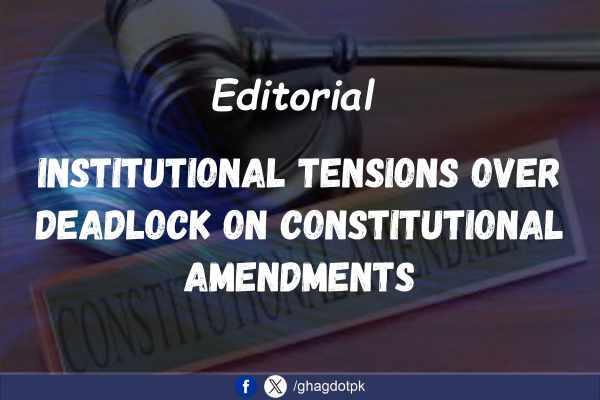It is concerning that the different state institutions are not just competing with one another for institutional, societal, and personal advantages without acknowledging the obstacles and problems Pakistan faces. Instead, some so-called “personalities” have devolved into personalities that transgress the Rules of Business. The name Constitution is being used but the “work” is being done. No one realizes that in the context of circumstances and events, some undesirable and unpopular decisions have to be made. That is the bitter truth. While the public is aware of how political parties and leaders handled the issue of some proposed constitutional amendments and how political bargaining was conducted, the parliamentary forces of the nation may not yet be aware of the extent to which this game damaged the credibility of political parties and the parliament. The practice of projecting the proposed amendments in a theatrical fashion on television screens, rather than comprehending or elucidating them, created a climate that encouraged controversy and rendered the otherwise serious occasion frivolous with needless platitudes.
It was the “keyboard warriors” of social media and mainstream media that finished the hard work, adding to the complexity of the whole issue by making it more “dramatic.” More animosity and a growing gulf between the various state institutions ensued from the so-called experts’ relentless extraction of conspiracy theories from the proposed revisions, which they treated as ordinary stuff. Making the most of the chance, Maulana Fazlur Rehman—who has been critical of Pervez Musharraf’s Legal Framework (LFO)—turned his home into a “political theatre” in an attempt to establish his authority as a kingmaker within the “context of the 1973 Constitution.” As a result of everyone’s performance, the situation not only turned sour but also raised more doubts about the institution’s sincerity and credibility. The higher judiciary’s journalistic spokespeople also used all of their “capabilities” to sell the Constitution, human rights, and the judiciary’s independence, demonstrating once more that “we are no less than anybody.”
The ugly reality is that Pakistan’s upper judiciary’s political decisions have crippled the system, instilled suspicion in society as a whole, and generated several fundamental problems regarding freedom of expression. In a situation like this, it is impossible to downplay the significance of making changes to the Constitution and revising the authority of the Parliament and the Executive.
Regarding the Shanghai Cooperation Conference, which Pakistan is hosting, extraordinary steps are direly needed to solve some of the issues. All parties involved in this matter need to exercise the highest responsibility when considering the current wave of terrorism, relations between Pakistan and Afghanistan, interaction with China and the US, and numerous other challenges. As anticipated developments in the area may have the greatest detrimental impact on diverting the state’s attention, and our internal issues are laying the groundwork for more difficulties.






